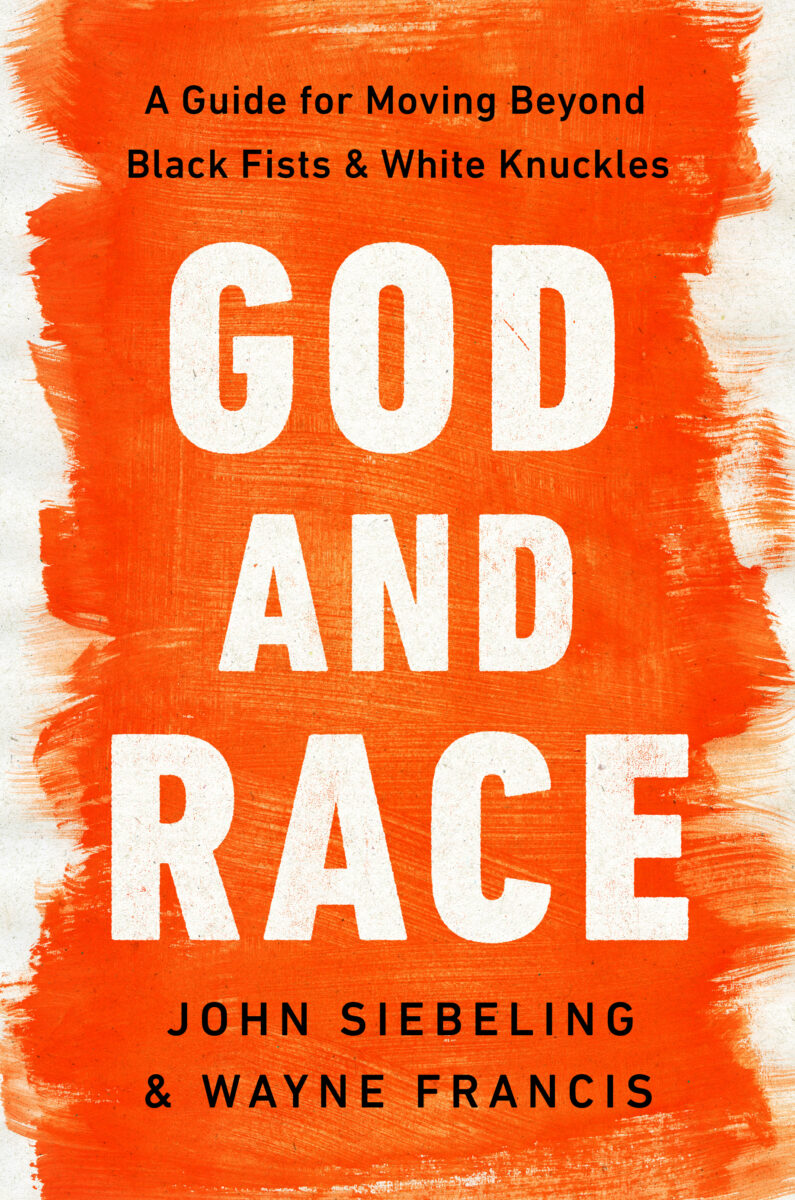Love, Acceptance, and Celebrating Differences: Tauren Wells and John Siebeling & Wayne Francis
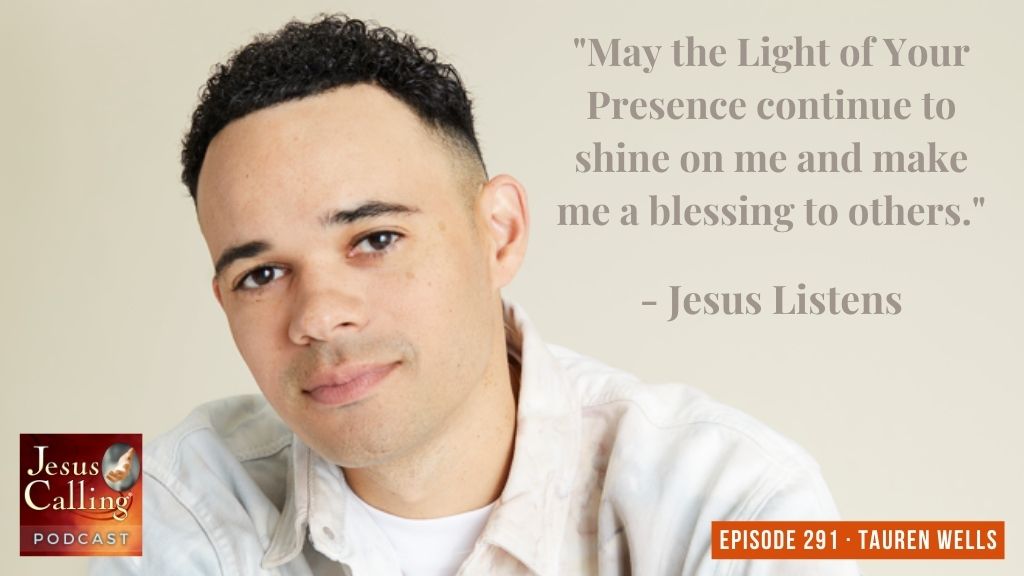
Tauren Wells: I think we have to navigate new ideas to reach new people. The Lord our God is one Lord and thou shalt love the Lord thy God with all that heart, all thy soul, all thy might. And then it goes on to say, “I want you to talk about this when you wake up. I want you to talk about it with your kids when you go to sleep. I want you to talk about it when you’re on your way to the store. I want you to talk about it at every point of every day.”
Love, Acceptance, and Celebrating Differences: Tauren Wells and John Siebeling & Wayne Francis – Episode #291
Narrator: Welcome to the Jesus Calling Podcast. When it comes to loving others, we sometimes have to stretch ourselves to honor the commands that Jesus has about love. How can I love someone who is so different from me, we might ask ourselves? How can I love someone who I don’t understand and who doesn’t understand me? In our daily lives, it’s natural for us to make bonds with people who are like us, who have our same values, who like us, and believe as we do. It can be tempting to live in that bubble and *think* that we are practicing love. But Jesus calls us to do more. He asks that “all we do be done in love.” If we can just remember that before each conversation we have, before each decision we make in regards to others, as we measure the words and actions that we speak and do each day, we’ll find that a life lived in love will bring healing, reconciliation, and benefits to our lives we could have never imagined.
Our guests this week are deliberate about taking a posture of love toward what they do in the world. Tauren Wells is a musician, songwriter, and speaker who encourages us all to recognize God’s love in all that we do and say. And pastor and writers John Siebeling and Wayne Francis have purposefully made unconditional love a part of how they welcome people of all kinds into their churches, and now they’re building off of that to bring people together to have conversations about love, acceptance, and race.
Let’s get started with Tauren Wells’ story.
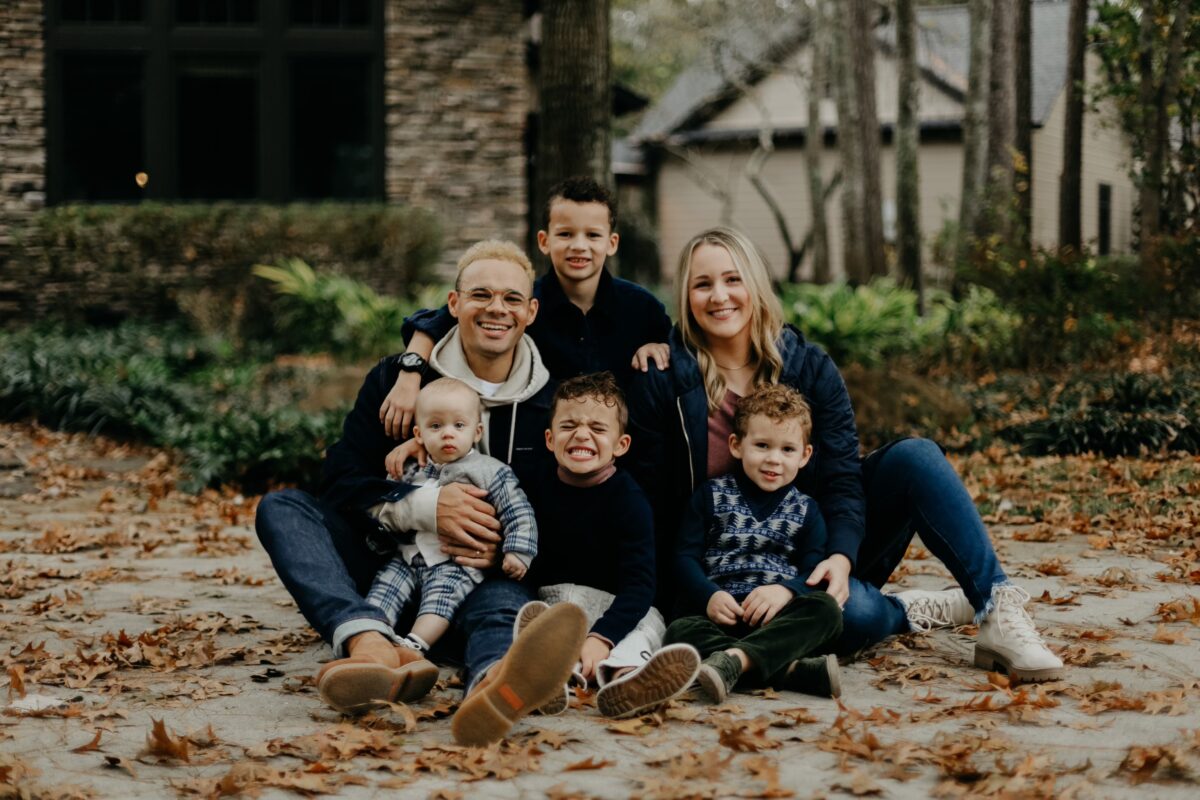
Tauren Wells: Hey, what’s up? This is Tauren Wells and I am from Houston, Texas, where my beautiful wife of ten years and I reside with our four little boys: Canaan, Lawson, Navy, and Banner. They are eight, five, three, and four months. So we are very busy. I am a touring musician, songwriter, and speaker.
Growing Up Years
I grew up in the great state of Michigan—holler at your boy here, Pure Michigan—in a city called Battle Creek. I love all music, you know, obviously, I loved the stars of my childhood, Michael Jackson and Prince, and people like that. But as we started going to church, I started listening to more and more gospel music and leading gospel music. That’s what my church did. So we sang songs by Donald Lawrence and Fred Hammond, Israel Houghton, you know, things like that. And so there was like a funk element and a jazz element to gospel roots. And then, of course, those same roots exist in pop and R&B music.
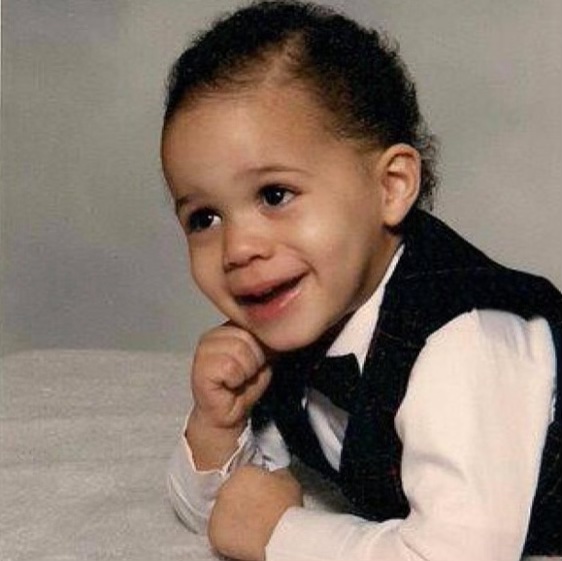
I was about nine years old, and the first thing that I wanted to do was be in the choir. I just thought the choir was so amazing and they let me into the choir as a kid. It was the adult choir, but they let me sing. And I was so excited. I was singing loud. I was singing high. I was singing full power.
One day the choir director actually stopped the rehearsal and said, “Tauren, I don’t think you understand the point of a choir. You’re supposed to sing your part and blend in with everyone else. This is not a solo, so chill.” So I kind of had this idea that I enjoyed singing, but, you know, Michael Jackson and N*Sync and all of that happened on another planet for me, like that wasn’t real life or possible in any way.
But I started writing songs. Then I started leading worship in high school, which was cool because I got to bring my friends. I went to public school, got to bring them to church and lead them in worship, started speaking when I was sixteen, and just loved ministry, not necessarily the platform or the microphone, but setting up the chairs and being a part of dreaming about what events could look like, doing stage design. You know, seeing my friends step into a relationship with Jesus, was really exciting to me. Then that led me to Bible college, where I went to Indiana Bible College and studied theology and music. I started a band there. We ended up touring. I met my wife there. We got married some years after we went to school together. But yeah, that’s kind of the journey of how I got to where I’m at now.
The Joy of Worshiping God Through Music

I love dancing, I love performing, I love having fun. And I don’t think that the presence of God is a fun-free zone. Like, yeah, we know that the joy of the Lord’s supposed to be our strength, but you can only be serious about God and being in God’s presence. If in His presence there is fullness of joy, why can’t we do things that demonstrate joyfulness like smiling, laughing, dancing, and celebrating? And so that’s a part of what I do. And it’s really important to me because now that I have my own sons, I want to create experiences that they enjoy, that capture them emotionally. And even entertainment-wise, I think entertainment can be used to bring people into a certain mindset in which they experience the glorious, holy presence of God. And so that’s why I do the music that I do.
“I love performing, I love having fun. And I don’t think that the presence of God is a fun-free zone.” – Tauren Wells
I love leading worship. I do it half of the year in my local church. I love the Word of God. I preach it on a regular basis. I try to live it even more than I preach it. And it’s just an important thing for those things to coexist.
I am so excited about what God is doing in the world through the creative arts, through visual arts, through movies, books, and podcasts. It’s absolutely unbelievable. And I’m just thankful to be a part of it, honestly.
The Church has progressed and thank God it has. That’s where I developed a love for church, for music, and for God. If we’re really trying to make our churches diverse and multicultural, it’s not just having people in the room that look like the culture we want. It’s creating the pieces of fabric that make up those cultures and weaving them into the faith community that we’re building. So it’s something that I’m pretty passionate about and is on my heart.
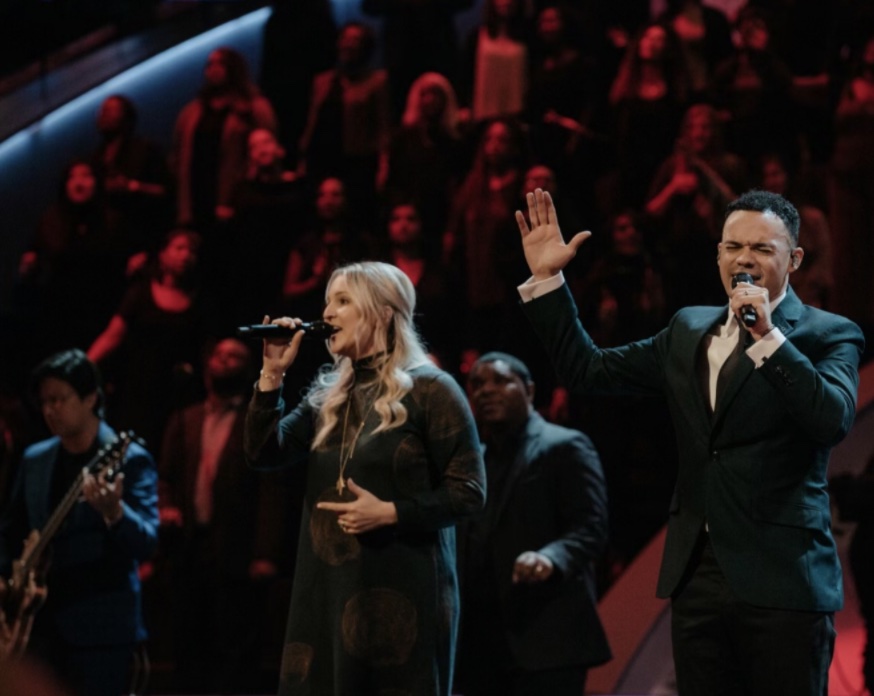
And I think as I am raising my young men, they love worship music, but they love hip-hop. So why create space between a Sunday morning experience that includes no semblance of hip-hop when that is the number one genre in the world? And I think we wrestle with that. Rock and roll have been the number-one genre in the world for a long time. It’s not anymore. It’s hip-hop. So our musical leaning and worship music has followed a kind of rock feel, that’s changed. So I think the music has to change on the platform. An opportunity that we give it has to change as well.
“If we’re really trying to make our churches diverse and multicultural, it’s not just having people in the room that look like the culture we want. It’s creating the pieces of fabric that make up those cultures and weaving them into the faith community that we’re building.” – Tauren Wells
Engaging With the Voice of God
I want people to be able to engage with the voice of God every day. We need His voice. We need His voice, we need to be able to hear Him when He speaks, when He corrects, when He encourages, when He leads, we have to be able to listen.
I ordered three Jesus Calling books because I’m about to go on tour, and I want them on all of our buses. And obviously, you can’t top the Bible, okay? It is the chief authority, but there is something so significant about the intimacy that is created in the pages of the book Jesus Calling. So it’s very important. And you know, I’m doubling down on my efforts to create that space, which is why I wanted a physical copy in the spaces we’re going to be inhabiting, because it’s so good, it’s so rich. It’s the things that you need to hear from God, somehow right when you need to hear them. And it’s one of those books that has withstood the test of time. And I think there’s something to be said about the merit and the value of books that last from decade to decade.
My life has been greatly refined, my heart has been refined through what I had the privilege of doing. I think you can go two ways with the platform, with success, with notoriety. In any space, it’s not just public success, you know, there are people who make a lot more money and have a lot more influence but don’t have as much light. I think the options are the same. You either lean into the process and let God use it to refine you, or you lean into the success—you drink your own Kool-Aid, so to speak—and you die from the inside out.
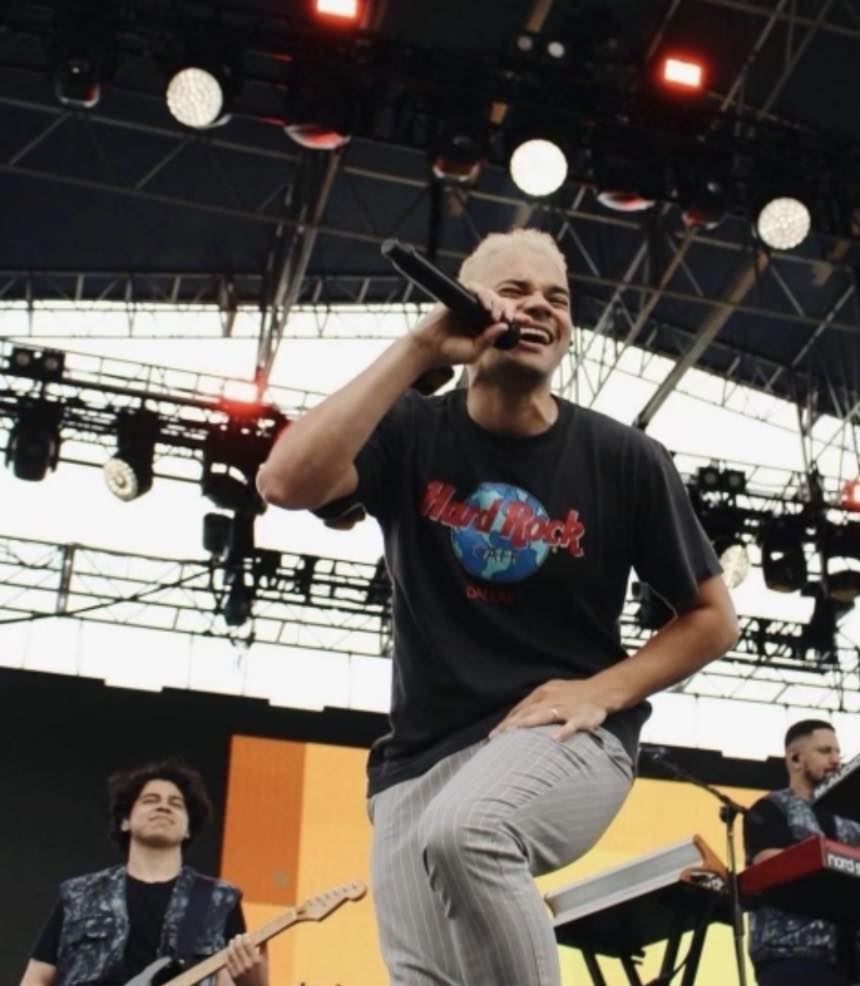
I think what God graced me to understand early on was that I am not capable of carrying success. I don’t think anyone in history ever has been except for Jesus. That’s because His measure for success was completely different from our own metrics for success. And I learned early on that you have to define what success is for yourself or someone else will. And if you allow someone else to tell you what success looks like, you can spend your life winning and get to the end, only to realize you lost, because you have to win in multiple categories. So my musical journey, God has used the songs that I’ve been privileged to carry to show me the greatest area of need that I have for Him.
“I am not capable of carrying success. I don’t think anyone in history ever has been except for Jesus. That’s because His measure for success was completely different than our metric for success.” – Tauren Wells
A song like “Known” was what God used to lead me into understanding that I’m not just loved based on what I can do. I’m not loved based on good interviews, good press, good songs, good ticket sales, good singles, good grades, good promotions, good looks, you can fill in the blank with whatever your narrative has told you about yourself. But He allowed me to see He really just loves me before I could ever do anything for Him. Before I could go out there and do what I do—or however you want to frame it—He loved me. And that is something if you really wrap your heart and your mind around it, it’s an amazing truth that God just loves us, not because of who we are, but who He is.
It’s a transformative truth. I sing it every night. I’ve sung it thousands of times, I have to remind myself over and over, and it’s reminding me over and over. There have been moments out on stage like, Oh, I just hit a vibe. We’re on a wave. These people are going crazy. This is amazing. They’re so excited they can’t wait. And then I hear that. Fully known. Like to be well known—isn’t the greatest objective in life to have the crowd screaming your name or the people following you or the right people knowing who you are for the right moves so that you can move forward? It’s not the highest level of success. Being known well is a much greater value, so that’s something I’ve learned and honestly, I think it’s given me this perspective of humility. I’m not saying that I’m great at it. But it gives me a perspective for it, that other people see the highlight reel, God sees behind the scenes. So why pretend? Why try to create things that just aren’t true? It served me.
Narrator: To learn more about Tauren, please visit www.taurenwells.com, and be sure to check out his albums wherever you get your music.
Stay tuned to John Siebeling and Wayne Francis’ story after a brief message.
Level Up Your Prayer Life, with Jesus Listens
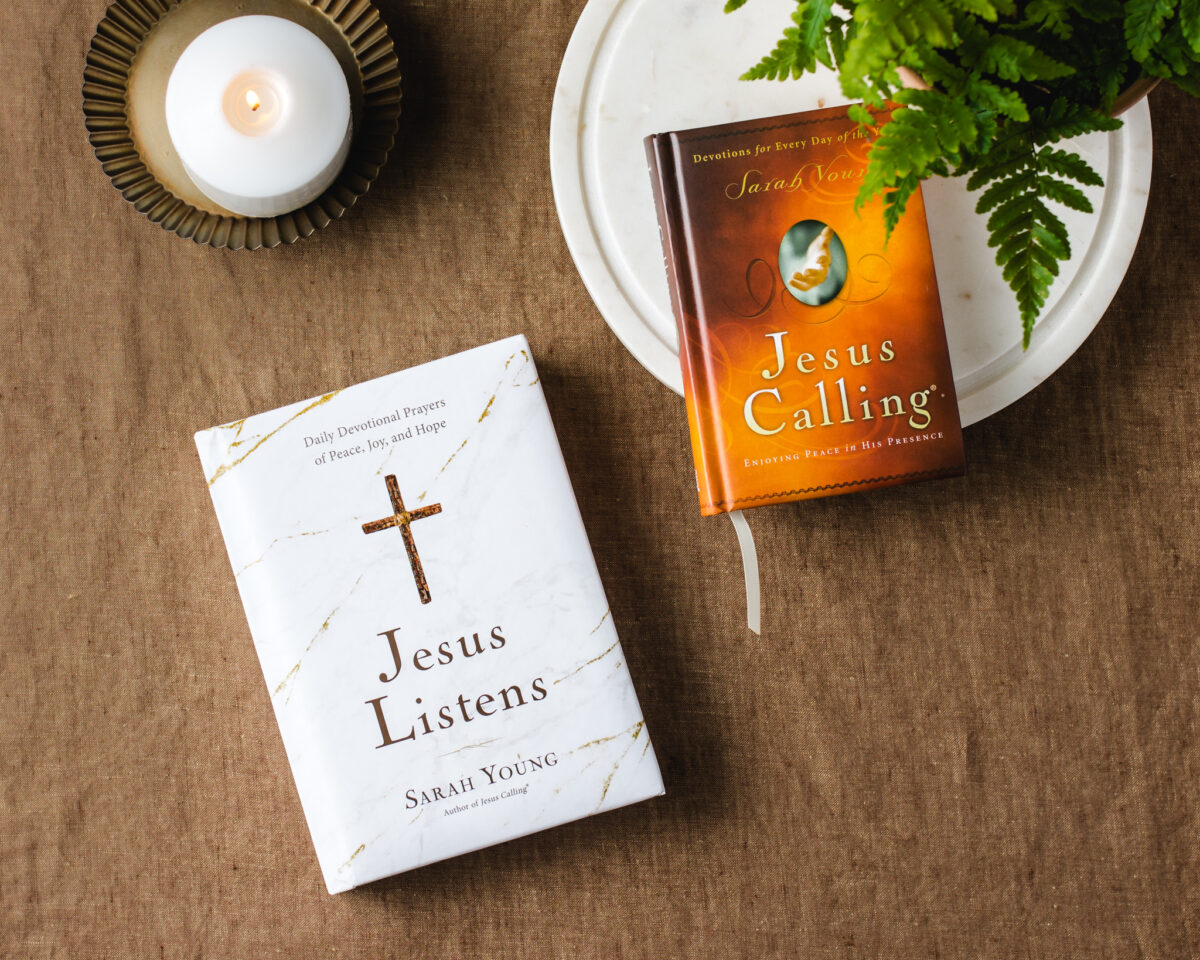
Many of us want to develop a deeper prayer life. In this new 365-day prayer devotional, Jesus Listens, Sarah Young offers daily prayers based on Scripture that will help you experience how intentional prayer can connect you to God and change your heart. Learn more about Jesus Listens and download a free sample at jesuscalling.com/jesuslistens.
Narrator: Our next guests are John Siebeling and Wayne Francis, pastors at Life Church and authors of God and Race: A Guide for Moving Beyond Black Fists and White Knuckles. As pastors of racially diverse churches with campuses in Memphis and New York, John and Wayne collaborate consistently on how to stay vulnerable and have open conversations on race. They are here to share hard-won lessons and God’s vision for a diverse church.
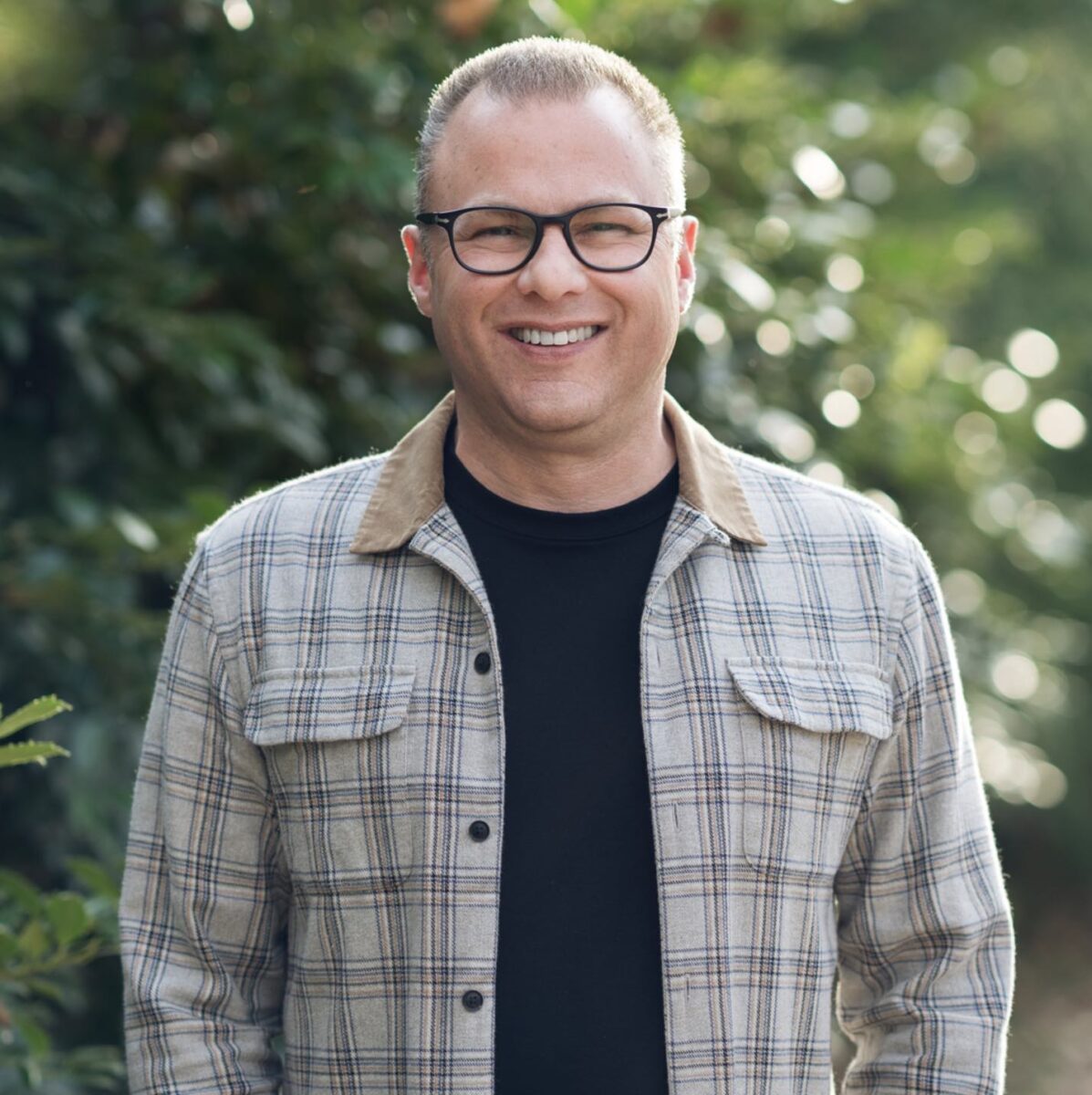
John Siebeling: I’m John Siebeling, I am the senior pastor of the Life Church in Memphis, Tennessee, a church that my wife and I started just over twenty-five years ago.
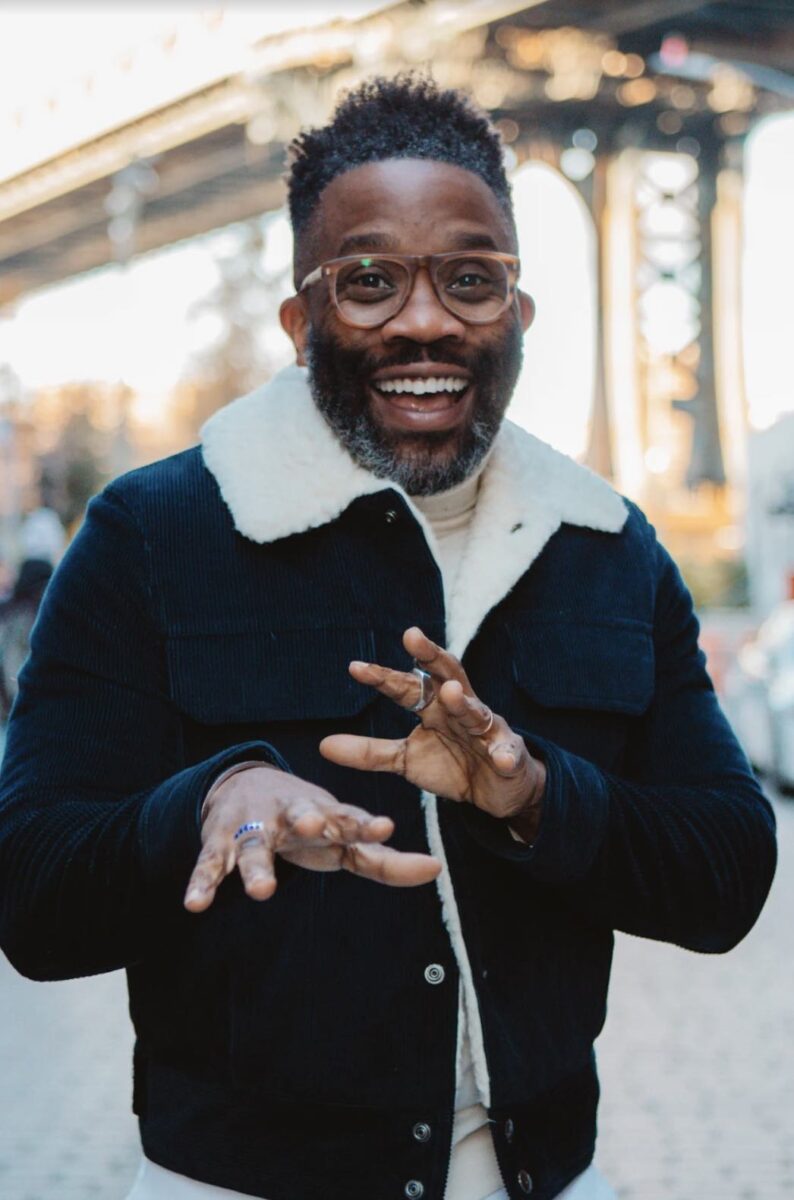
Wayne Francis: I’m Wayne Francis, and I am a born and raised New Yorker, and my wife and I started a church eleven years ago called Authentic Church in the metropolitan area of New York, just a little bit north of Manhattan in Westchester County. And recently, about a year and a half ago, our church merged with the Life Church, which obviously is based here in Memphis, and we became the New York location of the Life Church.
John: I grew up in the South, in Baton Rouge, Louisiana, and was a missionary for three years in Nairobi, Kenya. And then we launched our church in 1996. And so now we have locations throughout the Memphis region and also a few locations around the country and around the world. So we are thankful for God’s faithfulness in our journey.
Wayne: As a child, I always dreamed of entertaining people. So in some ways, I guess there’s a little bit of that aspect to being a public speaker, a hundred percent. And so I’m not totally fulfilling my calling. I thought that would be sort of like an actor or something, but I always felt like I wanted to engage people and to speak and to have an opportunity to create joy and laughter and happiness in others. And it just seemed like the arts or public communication would be involved in that to some capacity.
John: And wait, wait, can we also let everybody know what your middle name is?
Wayne: Oh, think about this. I was destined to be an entertainer, so my middle name is Wayne Newton Francis. Yes, I am the first Black guy named after that wonderful Las Vegas entertainer. I was destined to get into entertainment. My mom was in love with Wayne Newton and I’m named after him, so… I’m doing jazz hands right now.
Parallel Paths to Foster Diversity
John: We started our church in Memphis with the commitment to be diverse. It was in our vision statement that we were a diverse church. However, when you came to our church in those first few years, we were pretty much all white. And it was just kind of funny because I guess it was a true vision statement. It was a true picture of where we were going. We weren’t there yet, but we started the church with that in mind, and that was really in our heart. It was the soul of our church, so ultimately we became diverse. And you know, in a matter of years, we looked like Memphis. That was always our goal, and we always encouraged pastors and leaders who feel a calling to build a diverse church.
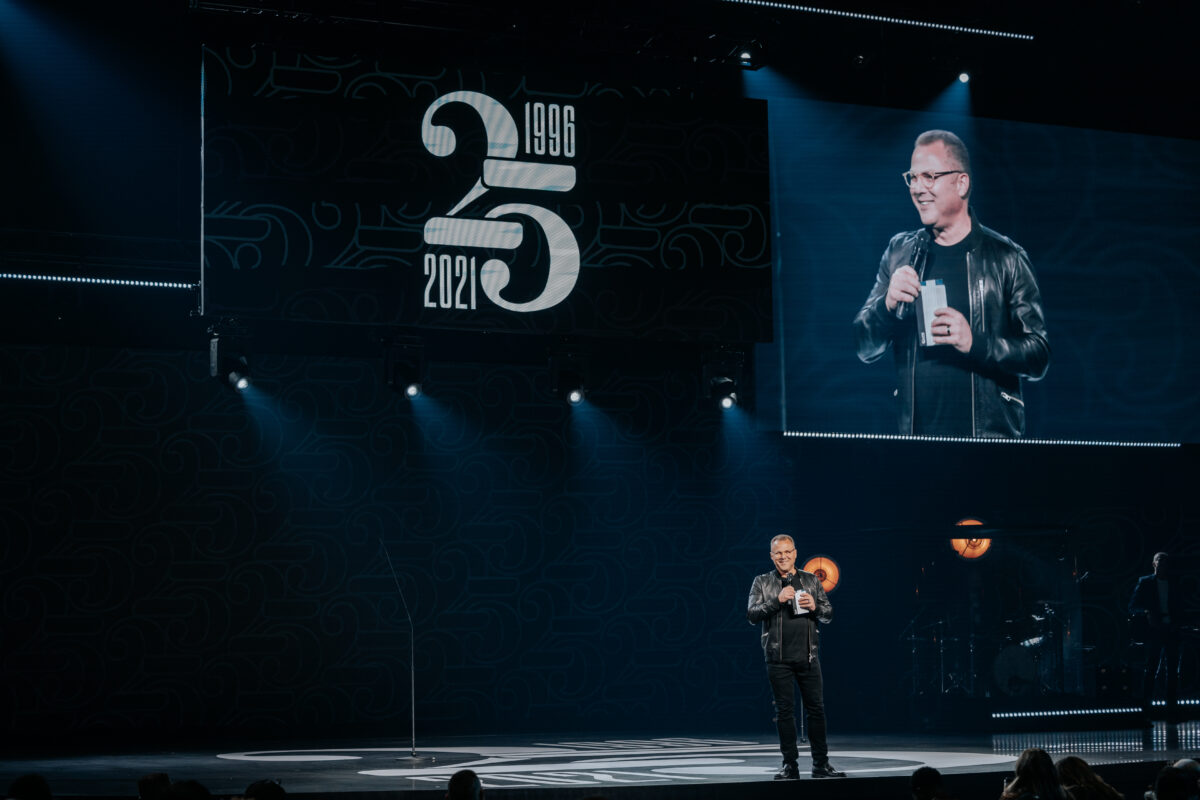
What you need to do is build a church that reflects your community, because that’s when you have the best chance to engage your whole community as a church. Otherwise, you kind of become a subculture of your church. So yeah, we started with that as a goal. It took a couple of years, but that’s the picture of our church today.
“Build a church that reflects your community, because that’s when you have the best chance to engage your whole community as a church.” – John Siebeling
Wayne: I had started a church with about seven young white people, so most of the people at my church, for a long, long time, our church was predominantly white. When people of color came to church, people just assumed that they were like my cousin or my uncle. So we intentionally started our church in New York with diversity in mind. That was a non-negotiable, and it was one of the things that motivated me to recruit a team that reflected the place that I was going to.
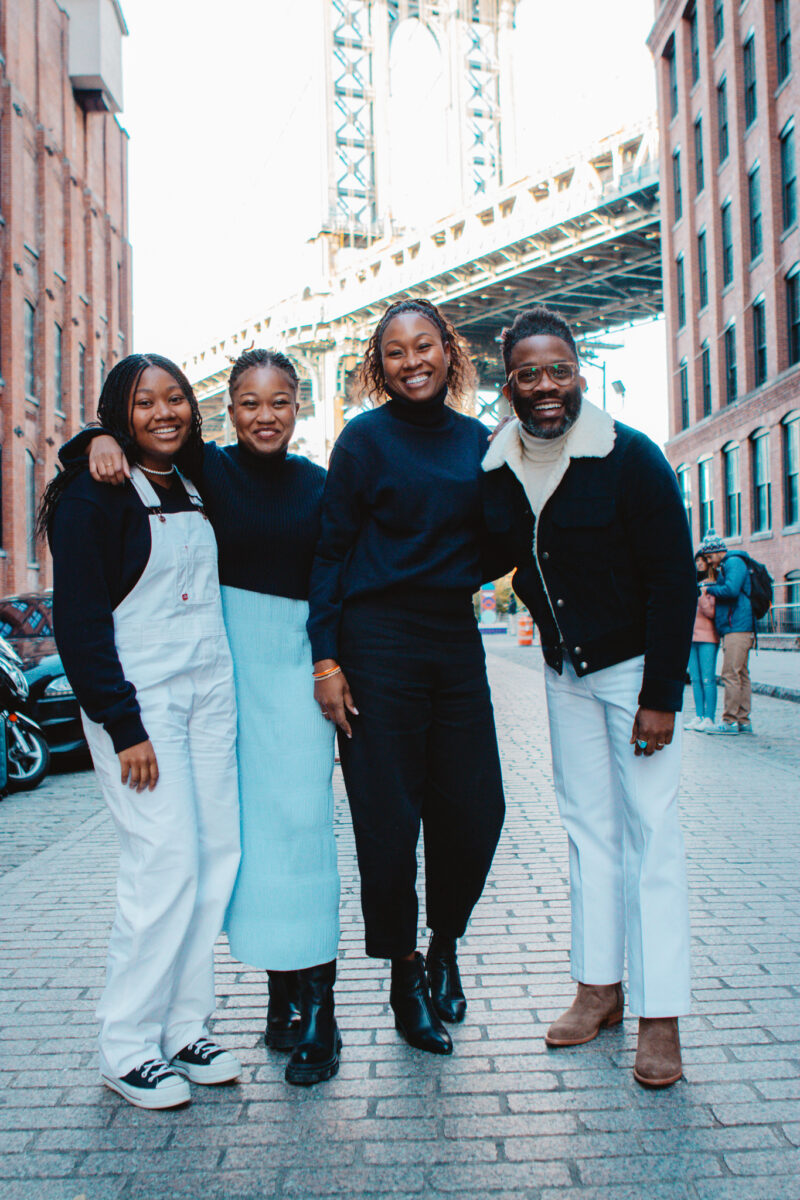
And so when we first met, I had heard about what was happening in the Midsouth through his church as a white pastor and Pastor Leslie, both of them leading a church in the hotbed of racial strife in America. And it was diverse, and I thought that was very fascinating, particularly in Memphis. You know, I’m like, Whoa, I need to meet this couple.
And so when we started connecting and I was coming down, I thought, maybe it was like a cliché, but I used to say, “This is my favorite place to preach outside of my church.” And I had been an itinerant speaker for many years preaching places, but I think it was that chemistry, that DNA of diversity and watching that happen in a very unusual way, in very unusual contexts—me being in New York, a metropolitan place where there is a lot of diversity. But when it came to the church space, there were a lot of homogenous churches. It was powerful for us to have those conversations about the challenges. It wasn’t easy leading diverse churches.
John: Wayne and I met at a conference, the Association of Related Churches—ARC puts on an annual conference. I’m a part of that. We’re both part of the ARC. I helped start the ARC twenty-something years ago. And so I guess Wayne did a session and I saw him after. We just had a bond. We had an instant connection.
I don’t think that is a problem for either one of us building relationships, I think it goes with our personalities and goes with the territory of what we’re called to do. I like to say that sometimes God brings people into your life that you have a divine flow, with and there’s just some kind of natural and supernatural connection. And so I think that was the case with Wayne, and the both of us recognize that there was something to this that was maybe greater for our purposes and for the kingdom. So, you know, our partnership started really from just a relationship and then it flowed out into the church.
Wayne: We had a lot of quantity time, too. We were walking around New York City, we were in Manhattan. And again, our relationship started off so collaborative and remains collaborative, but we were parsing ideas about, “Okay, what are we doing this fall?” And I said, “Man, I had this idea for a series and we were talking about race issues and whatnot.” And I said, “I’d love to do a series called ‘Black Fists, White Knuckles,’ and it would be about having open-handed conversations, open-hearted conversations about race.”
And that was born in Manhattan and became something that was the outflow of our mutual passion to speak about diversity from a place of being practitioners. We’re not experts, but we had experience, Pastor John with twenty-three years at that time of experience or however long that was for me, was leading my church for eleven years.
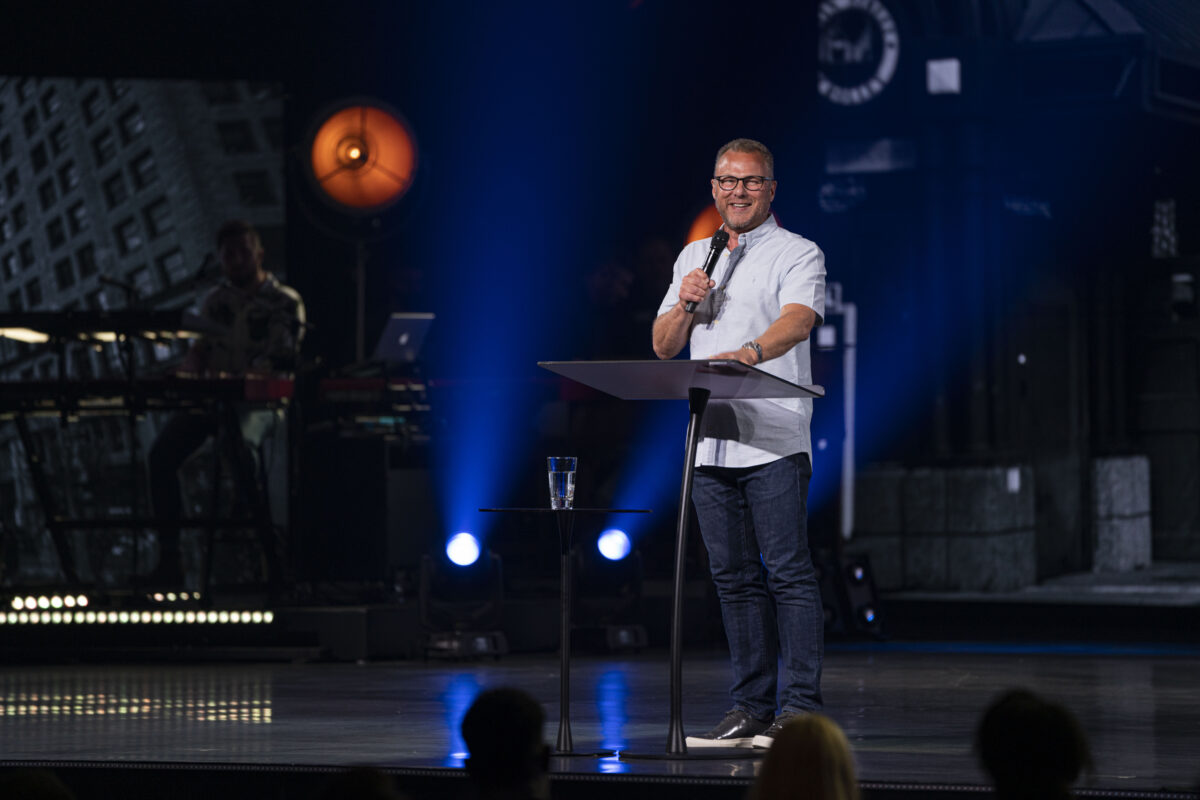
John: We’ve been talking about diversity from day one. I think we’ve gotten better at it. And we’ve learned to do it in a clearer way so that by the time we started talking about Black Fists, White Knuckles, February 2020, you know, I think we went further in the conversation and we could go further because it wasn’t just a white man talking about diversity or a Black man talking about diversity. We were together talking about it to each other. So I feel like we could go further with it.
Wayne is a lot of fun, and we kind of talked about some ground rules to our ability to have these conversations. And one of those ground rules is to laugh, that we got to be able to laugh. Now, it comes easier to some people than others. And one of the things I appreciated about Wayne was that even though there’s been a lot of intensity around the subject, he was still able to find humor in certain things. And so it really helps that that’s just one of the ground rules. You know, we have to listen. That’s another one, listen to each other. We have to look into what the other person is saying. We need to learn and then we need to laugh.
I think Wayne and I both believe that the key to moving forward beyond some of the racial tension that we’ve seen is just super open-handed, open-hearted conversations. And when you have an open heart and you have an open hand, you sit down with somebody who’s different from you and you get the opportunity to see and hear their heart and their perspective, you grow and you learn.
“The key to moving forward beyond some of the racial tension that we’ve seen is just super open-handed, open-hearted conversations. And when you have an open heart and you have an open hand, you sit down with somebody who’s different from you and you get the opportunity to see and hear their heart and their perspective, you grow and you learn.” – John Siebeling
Practically Empowering Each Other to Stay Vulnerable
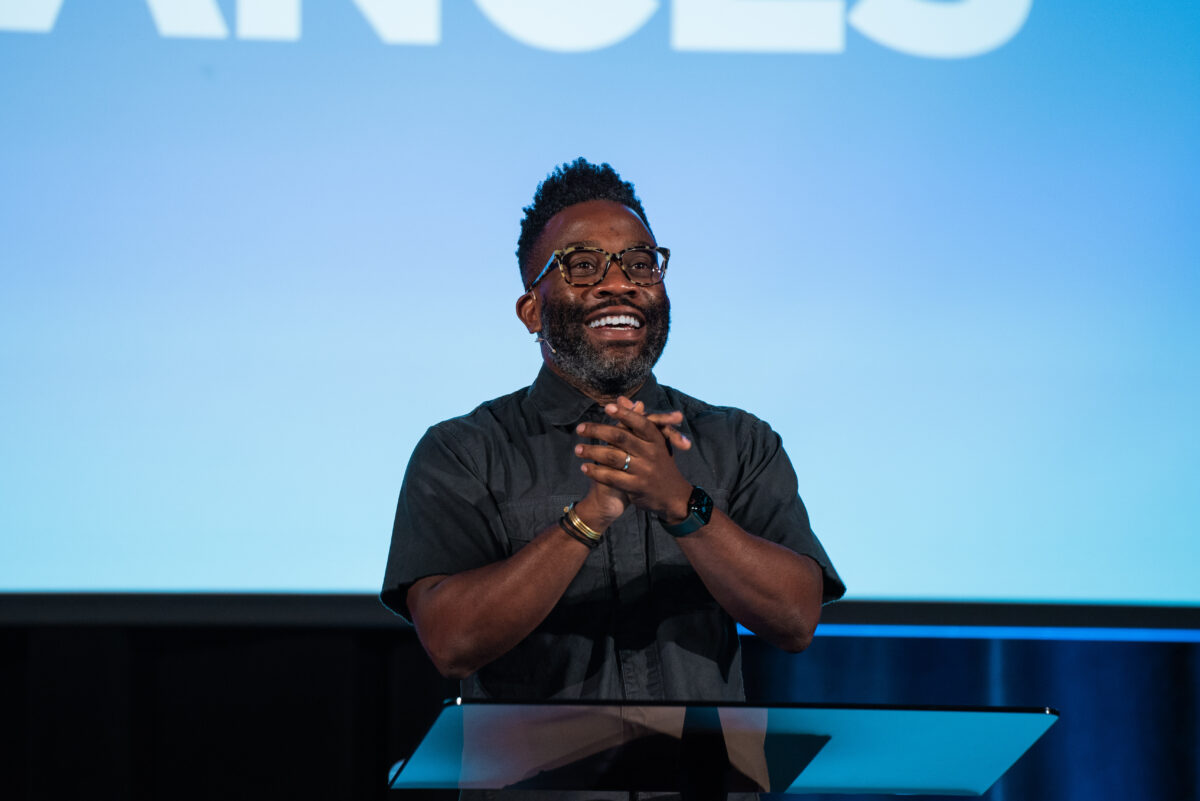
Wayne: We get very practical to give people a rubric of sorts of practical ways to implement this into their day-to-day lives, whether they are church leaders or just Christians in general. And so it’s very practical in nature, but it does expose a lot of vulnerability that is required for people to [bring] mutual respect, dignity, honor, integrity in the conversation. I think we both like to say we’re trying to model the conversation in a great way, not just giving you soundbites and tweetables.
We want to be people who somehow empower you to walk into a conversation regardless of where you land on the spectrum of your ability to communicate with people on diverse issues, feeling equipped to do that in a way that makes you successful, hopefully, in starting conversations and sustaining them.
John: I think that one of the things that we’ve talked about is this idea of the perfection problem that sometimes we think we have to say things perfectly or we’re going to get canceled. Or since we want to be perfect, then sometimes we don’t say anything at all. So I think one of the things that we’re trying to do in the book gives people permission to have safe conversations with people of a different skin hue than you, and to give each other grace to be able to say things that maybe may come across as offensive, but we don’t mean to offend by them, just simple questions.
And by the way, we don’t think this is the only racial problem that we’re facing in the country, in the world. Obviously, there are other racial challenges besides just the white/Black challenge. That’s the one we’re addressing. But the point is that sometimes you have questions and so that you have to be vulnerable, you have to be willing to be transparent and say, “I don’t understand this. Can you explain this to me?” Or, “How should I say this?” I’ve had, you know, African-American friends, Black friends who have said, “We need to hear more from you.” And so my question then is, “What do you need to hear from me? What does that mean? Help me so I know how to communicate better.” And I just think it’s that kind of vulnerability and transparency that’s going to help us grow.
Wayne: In the book, I talk a little bit about the text that I sent to Pastor John during the Ahmaud Arbery case and everything that was going down after he was brutally killed. And I didn’t need an answer, per se. I just needed to have a conversation, actually. And some of the stuff that we talk about is just being able to model a way of communicating where I can express myself, express what I’m feeling, express why I’m feeling angry. And it’s a safe space where we talk about how to cultivate that safety, even though we don’t always have the right answers or how to approach something the wrong way.
There has to be a culture in which people can have conversations, and we really push on this culture being that there is a reciprocal nature to it. We’re not just trying to empower white people to have these conversations. We’re empowering Black people, people of color, how to have these conversations in a way that’s life-giving. And it blends us, moves us closer together toward the vision that we see in scripture, which is one nation, one people, one tribe.
“We’re not just trying to empower white people to have these conversations. We’re empowering Black people, people of color, how to have these conversations in a way that’s life giving. And it blends us, moves us closer together toward the vision that we see in scripture, which is one nation, one people, one tribe.” – Wayne Francis
Moving from Anger to Understanding
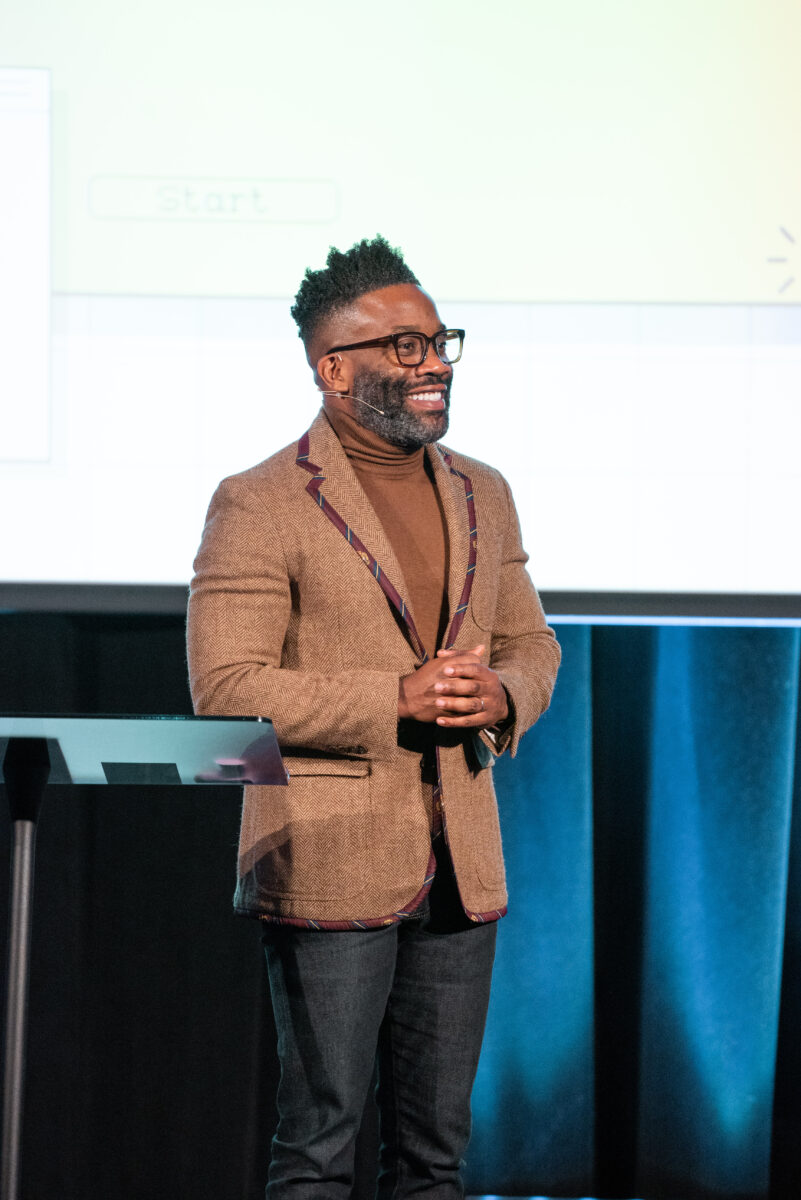
Wayne: Anger is a very human emotion that we’re doing a lot of soul work in our church and talking about this, and it’s okay to be angry. The condition of the soul is always at the tip of the tongue, and we have to keep the condition of the soul right so that even when we’re angry, we can communicate in ways that don’t blow everything up. We all blow everybody up all the time. I think that there’s a way for us, and we even get into how to do that on social media, because that has been a place where, Lord have mercy, have we started some things on social media.
Let’s get practical: we’re going to get upset. We’re going to get hurt. We’re going to say some things that, you know, are going to make you feel some type of way. But canceling people is not the way that we move the conversation forward.
“Let’s get practical: we’re going to get upset. We’re going to get hurt. We’re going to say some things that, you know, are going to make you feel some type of way. But canceling people is not the way that we move the conversation forward.” – Wayne Francis
John: I think it’s in our DNA as Christians to be connected to the body of Christ and the body of Christ is diverse, right? This is a verse we quote often, Revelation 7:9, that gives us the picture of heaven: every tribe, every tongue, every race, every ethnicity. So we’re all going to that place. And so I mean, Earth is a place, I think, to practice what heaven’s going to be like.
On the day of Pentecost when the church was born, Acts 2, the Bible says there were people from every nation under heaven that were there in Jerusalem when the church was born. And so I just think that the idea of diversity and that diversity piece is in our DNA as believers. So there’s a longing for it, even though we’re more comfortable, maybe, with people who look like us and in a homogeneous setting.
Open Conversations with God and Each Other
John: I think the idea of spending time with God every day just for a few moments and not just a kind of one-time moment that you check off your list—I think I heard Joyce Meyer say, “Pray your way through your day.” And I love that. Obviously, the Bible says, “Pray without ceasing.” That means somehow, even in the midst of work and working out and cooking and doing all that we’re doing, we are communing with God.
“The Bible says, ‘Pray without ceasing.’ That means somehow, even in the midst of work and working out and cooking and doing all that we’re doing, we are communing with God.” – John Siebeling
And obviously, we’re very familiar with Jesus Calling.
Wayne: We just talked about it today.
John: What an impact that it’s had on so many people. Wayne referenced that we were just having a conversation with a friend, it’s his favorite devo. Every day he reads it.
I’m reading from Jesus Calling, February 7th:
Regal Jesus,
You are my best Friend as well as my King. I want to walk hand in hand with You through my life. Please help me face whatever today brings—pleasures, hardships, adventures, disappointments—relying on You each step of the way. I know that nothing is wasted when it’s shared with You. You can bring a crown of beauty out of the ashes of lost dreams. You can glean Joy out of sorrow, Peace out of adversity. Only a Friend who is also the King of kings could accomplish this marvelous metamorphosis. There is no other like You, Lord!
The friendship You offer me is practical and down-to-earth, yet it is saturated with heavenly Glory. Living in Your Presence involves living in two realms simultaneously—the visible world and unseen, eternal reality. Thank You, Lord, for giving me the ability to stay conscious of You while walking along dusty, earthbound paths. As Your Word declares, I am fearfully and wonderfully made.
Wayne: The beautiful thing about Jesus Calling is during this season, you need resources to kind of help you when you can’t conjure up your own words. It’s something that’s going to be more strategic in helping you to have those devotional moments with God in a beautiful, important way. We like to say it this way, that diversity isn’t reserved for heaven. It’s a requirement on Earth. And that’s what we’re trying to motivate leaders and laypeople to create contexts for that to happen within the church.
“Diversity isn’t reserved for heaven.” – Wayne Francis
We love to emphasize that it is all of our responsibility to have an open-handed conversation about race. It’s not one-directional. It’s not, you know, “White people need to get this fixed.” And it’s not, you know, “Black people need to make sure that we’re the ones that hold on to some of the injustice that we’re still experiencing and not get involved in the conversation in that direction.” We actually believe that we pastors need to lead churches that reflect the complexion of their community. And if your community’s diverse, your church should be.
John: We’re trying to model the way to have a conversation about difficult things and how it’s worth the conversation. It’s worth it. And there’s a way to do it. So I think that’s the bottom line is the modeling piece we want to show. Not that we’re perfect, but we want to show that in our relationship, we’ve been able to have these conversations and it’s powerful.
Narrator: You can find John and Wayne’s latest book, God and Race: A Guide for Moving Beyond Black Fists and White Knuckles, wherever books are sold.
If you’d like to hear more stories about love and acceptance, check out our interview with Cynthia Garrett.
Next Week’s Guests: Chris and Kelly Janson

Narrator: Next time on the Jesus Calling Podcast, we hear from Chris Janson, Christian county music singer, and songwriter, along with his wife, Kelly Janson. Chris describes where he’s seen God show up in his life–even in some unlikely places.
Chris Janson: Can you see God? I can’t really see Him tangibly, right? But I can see Him in everything that has happened to me. I saw God when our children were born. I saw God when we got married. I saw God when I was sleeping in the back of a car. I mean, I’ve seen Him in so many things. I see Him on hunts that I take with my kids, fishing trips, whatever. I see Him all around me. And it’s such a powerful thing that that’s where it comes from. I mean, how could you deny it?
